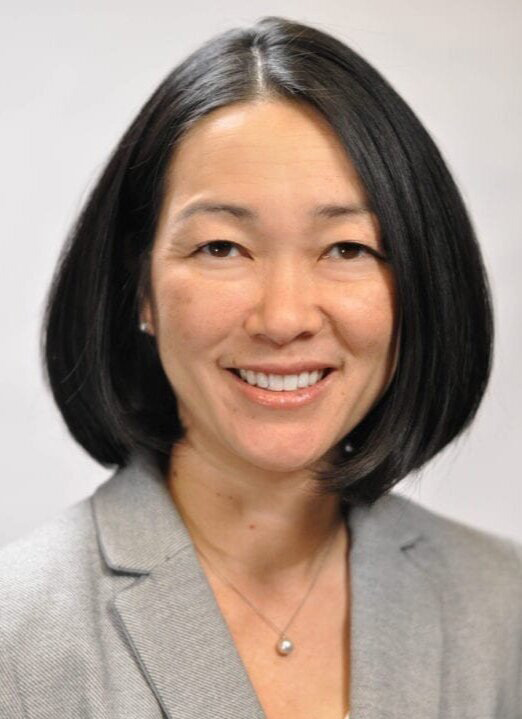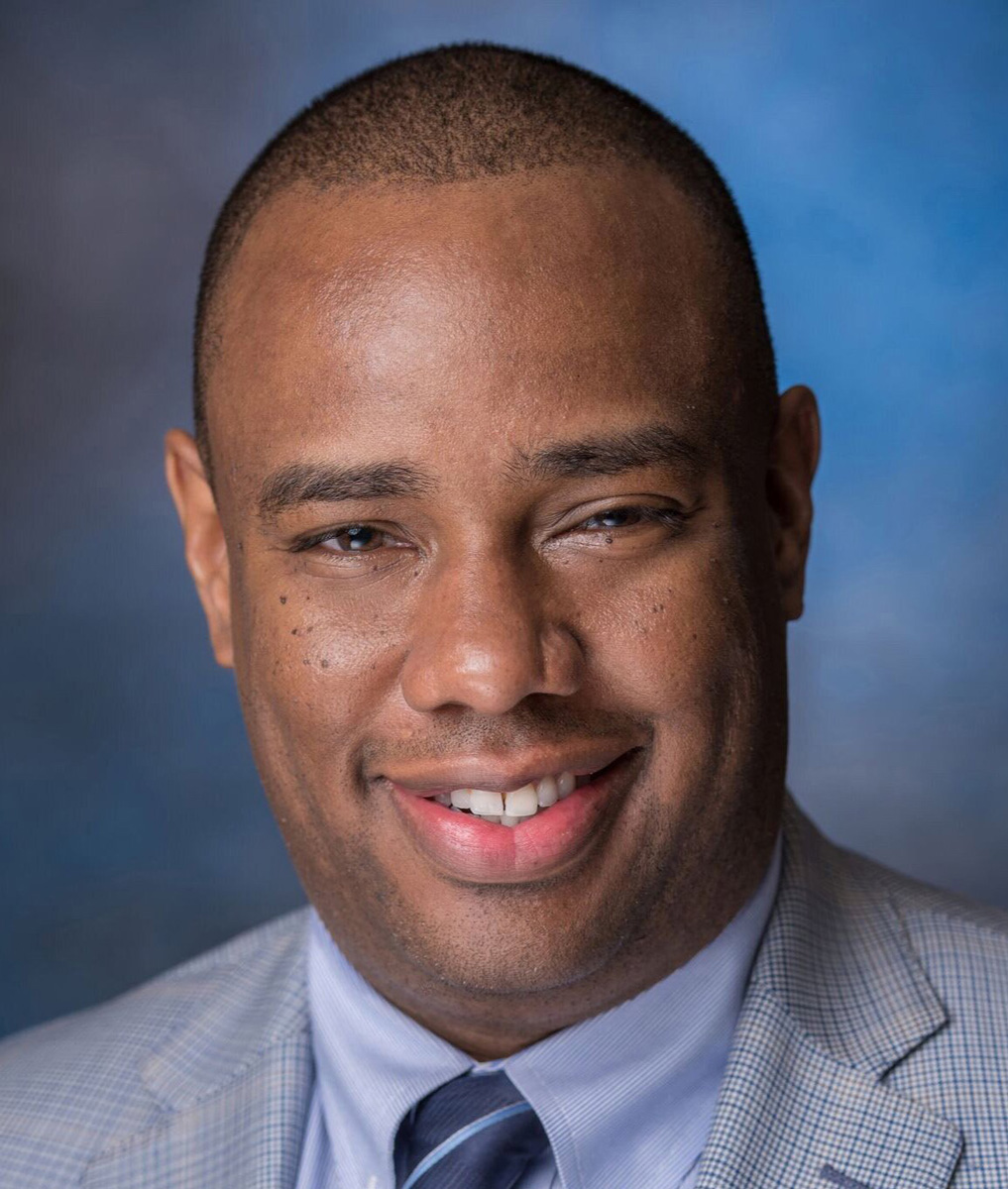Tawana Cooper was trying to buy a bigger house.
Cooper and her husband have three children, and she said they wanted a home close to her mother, who was suffering from cancer. They were looking for a house that would have an additional bedroom, expecting that her mother would eventually come live with them.
They had a place picked out, Cooper said, when she got a phone call about their loan.
“It broke my heart,” Cooper recalled. “Immediately my stomach fell to my feet. I started crying.”
Cooper had a judgment against her. They would have to use her husband’s income alone for a loan, meaning they could not afford the new house.
Cooper was one of thousands of Mississippians who went to St. Dominic Hospital in Jackson for care and later had a private debt collector come after her for an alleged medical debt. But in this case, Cooper had actually paid her debt—and still got sued.
St. Dominic is a nonprofit hospital in Jackson that says access to affordable health care is the community’s most urgent need, and makes clear that its debt collectors should mirror those stated values. But a Mississippi Center for Investigative Reporting investigation found these debt collectors—Smith, Rouchon & Associates in Jackson and Advanced Recovery Systems in Flowood—routinely sue Mississippians working in low-wage industries and garnish their wages. The debt collectors almost always increase a patient’s bill 33% for an “attorney’s fee,” tack on an 8% interest rate and demand the patient pay all court costs.
Neither debt collection agency responded to multiple requests for comment for this story.
‘I Saved My Receipt, Thank God’
About a decade ago, Cooper had gone to St. Dominic. At the time, she was traveling a lot for work. Cooper said she worked in self-storage and would go to new store locations for openings, computer installations and new employee training.
She initially overlooked the bill.

On a Sunday while she was out of town for work, Cooper said her husband was served with a court summons. Smith, Rouchon & Associates was suing her for unpaid medical debt. She said she returned home the next day, went to the attorneys Smith, Rouchon & Associates had hired, and paid the bill.
“I saved my receipt, thank God,” Cooper said. “It was a handwritten receipt from them.”
Cooper said she thought the matter was handled, but unknown to her, Smith, Rouchon & Associates proceeded with the lawsuit and won a default judgment when she didn’t show up for court. Cooper said she was totally unaware until years later when she was informed that her credit report had a judgment against her.
“It’s just an awful situation to happen to anyone,” Cooper said. “And I wouldn’t wish it on anyone.”
Low-Wage Workers Targeted By Debt Collectors
St. Dominic occasionally sued patients itself over medical debt. From 2018 to 2020, the hospital filed 267 medical-debt lawsuits in Hinds County under its own name. But it primarily relied on two local debt-collection companies. Smith, Rouchon & Associates brought nearly 1,000 cases against St. Dominic’s patients between 2018 and 2020 in Hinds County. Advanced Recovery Systems has filed nearly 2,400 such lawsuits in Hinds County.
Under St. Dominic’s debt-collection policy during that time, any collections agency the hospital used was required to follow the same standards St. Dominic sets for itself. That included forgiving any debts to people who qualify for financial assistance at St. Dominic.
Smith Rouchon & Associates mirrors this language on its own website: “We acknowledge that our collection services are an extension of our client’s image in the minds of the debtor or patient, and therefore we try to mirror our client’s beliefs and philosophy as closely as possible.”
Advanced Recovery Systems acknowledges this, too, writing on its website: “We realize this can be a very sensitive area for the consumer. (Advanced Recovery Systems) has set a high standard for handling the providers’ accounts while maintaining their community relations at the same time.”
But court records suggest these debt collectors have targeted people eligible for charity care.
In recent years, anyone whose household income was less than 200% of the federal poverty limit should have qualified for free medical care at St. Dominic.
Generally speaking, that meant a single individual who made roughly $11.50 an hour or less at a full-time job should not have been paying for medical care at the nonprofit hospital. In single-parent households or in families where one parent stays at home, those numbers are higher. Patients who made a little more money than those limits could still qualify for substantial reductions in their medical bills.
MCIR reviewed thousands of medical-debt lawsuits, finding that most contain little information about the finances of the defendant. In order to garnish wages, debt collectors must file a document stating where the defendant works. Many work in industries that are known to have low wages, like poultry, retail and fast food. In rare instances, though, the employer responds in the court record and includes the wages of their employee.
Those rare court filings are a window into the debt collectors’ practices.
Fewer Incentives to Follow the Rules
This investigation found at least 14 instances in which these debt collectors garnished wages from employees whose pay would qualify them for free medical care at St. Dominic if they could apply as a single individual. Because so few employers respond in the court record with wage information, this number is almost certainly a fraction of the actual number of people who might have qualified for free medical care.
Advanced Recovery Systems sued a woman in March 2018 for about $1,000 owed to St. Dominic. The woman worked at Dollar General, making $7.25 an hour. The debt collector garnished her wages. It took her more than a year to pay off the debt, according to court records.
It’s unclear what steps—if any—the debt collectors took when they saw how little money some patients were making.
Advanced Recovery Systems and Smith, Rouchon & Associates did not respond to requests for comment.
Erin Fuse Brown, a law professor at Georgia State University, said debt collectors are under the same obligations as nonprofit hospitals to determine whether a patient qualifies for financial assistance, but debt collectors don’t have the same incentives to follow the rule.
“It’s the hospital’s tax-exempt status on the line,” Fuse Brown said. The debt collector’s “incentive is to squeeze every last drop out of every debtor it can, rather than figure out whether or not the debt is collectible … it just wants to get the money.”

The federal government has been publishing consumer complaints on debt collectors for about eight years. Over that time, 43 Mississippians have submitted complaints against Smith, Rouchon & Associates regarding its medical-debt collection practices. It has the second-highest number of complaints for any medical-debt collector in Mississippi. Advanced Recovery Systems has 15 complaints on record, and Baptist Medical Center’s collectors have 27.
Many people said Smith, Rouchon & Associates sued them over debt that was not theirs or had already been paid. These actions caused a “tremendous drop in my credit score,” one individual wrote.
Several people described phone calls from Smith, Rouchon & Associates as rude and harassing.
“The company has been leaving 2 to 3 voicemails daily demanding they hear from me before the day is over,” one individual wrote.
Another individual who disputed their medical debt wrote that Smith, Rouchon & Associates was calling “my job three times weekly … I am about to lose my job because they will not stop calling my job!!!”
Nightmare in Justice Court
Most medical debt lawsuits are filed in justice court, which handles civil cases of $3,500 or less and where the judges are not required to have law degrees.
For more than a year, the Hinds County Justice Court has been holding sessions virtually because of the pandemic. MCIR observed some of these hearings, which moved quickly. Few defendants attended. Most hearings consisted of an attorney listing a patient’s debt and the judge approving a default judgment.
Attorney Charles Lee, the consumer-protection director at the Mississippi Center for Justice, said most debt-collection cases in Hinds County Justice Court work that way. Many folks do not receive a proper summons for their court cases, Lee said, and they might not even know they have been sued. The defendants who do show up rarely have a lawyer, Lee said, and many do not understand what’s going on. The judge asks if they disagree with the debt, Lee said, and most defendants are not sure what to say.
“Pretty much that’s the end of the case,” Lee said. “… Typically they can’t afford to hire an attorney for it. It’s pretty expensive to hire an attorney for representation in justice court.”
The Mississippi Center for Justice and the Mississippi Access to Justice Commission partnered with Cambria Solutions to launch a chatbot this month designed to help people navigate justice court at www.msjusticecourthelp.com.
MCIR spoke to one man who was able to successfully defend himself against a medical debt lawsuit in Hinds County Justice Court. Because he works in the medical industry in the Jackson area, he asked not to be named for this story.
Hollis Cobb sued him for an alleged medical debt from Baptist Medical Center. The man responded to the lawsuit and included his bills, arguing that the statute of limitations had passed. He also argued his insurance had paid the correct balance and that he was being balance-billed—which is illegal under Mississippi law. Balance billing is when a health-care provider charges more than an insurance company is willing to pay. If the health-care provider is in the insurance company’s network, the health-care provider has to accept the payment. Some health-care providers improperly bill patients the difference.

A year after the man’s response, a trial date was set. He said he had to wait about half a day in the courtroom for his case to be heard. Hollis Cobb had about 10 to 15 trials scheduled that day, he recalled, but only two other defendants showed up. Both agreed the debt was theirs and signed paperwork.
When it was his turn, the man said he made his argument. Hollis Cobb denied his claims, the man said, but the attorney had no proof at that moment.
The judge ordered a continuance, but there was never another hearing.
The man said he got a call from the attorney working for Hollis Cobb, who claimed they were no longer pursuing the case because it wasn’t worth it.
“What they were really saying is they didn’t have any proof, and I was right,” he said.
The man said he thinks other defendants could be fighting these medical debt lawsuits—and winning—but they either don’t have the knowledge or the resources.
“The average person would not be able to navigate this process without an attorney,” he said.
Cooper Fights Back
Tawana Cooper is still dealing with the fallout from the medical debt lawsuit Smith, Rouchon & Associates filed against her. She sued Smith, Rouchon & Associates in 2016 and resolved the case outside court. But her credit score was not fixed.
Cooper said she spent a year writing letters and emails, making phone calls, gathering evidence and sending documentation to credit bureaus to get her score fixed. At times, she had to take off work to get her credit score fixed. She called it a “nightmare.”
The house her family settled on is “a lot smaller than what we truly wanted,” Cooper said, and now her mother’s eyesight is failing.
“We really at some point will have no choice but to move her in with us,” Cooper said. “… I just hate that we may have to do it all over again. Buying a home alone is a lot of stress.”
Lawyer Macy Hanson represented Cooper in her civil suit against Smith, Rouchon & Associates. Macy believes debt collectors frequently make mistakes, but most people lack the resources to defend themselves in court.
“The firms that engage in consumer-debt collection work essentially are one-trick ponies. They only do consumer debt-collection work,” Hanson said, calling it a “cottage industry” staffed by armies of paralegals “robo-signing names of attorneys.”
“That’s how the Tawana Cooper situation happened,” Hanson said. “I don’t think they had any attorney look at anything.”
Hanson said he recently received a collection notice from Smith, Rouchon & Associates. He was hospitalized at St. Dominic in August for six days with a suspected case of coronavirus, Hanson said, and now he said he is being improperly billed.
“I love the doctors. I love the nurses. But I don’t like the billing department. The doctors and nurses saved my life, but the billing department …,” Hanson said as his voice trailed off.
Read Giacomo Bologna’s full series on medical billing in Mississippi:
Part 1: Investigation: Nonprofit St. Dominic Hospital Routinely Sued Patients Who Couldn’t Afford Care
Part 2: ‘It Broke My Heart’: St. Dominic’s Debt Collectors’ Tactics Cause Lasting Damage
Part 3: Medical Debt Lawsuits Hurt Low-Income Mississippians; Here Are Expert Solutions






